I have a list in which each item contains JSON data, so I am trying to parse the data using Ijson since the data load will be huge.

This is what I am trying to achieve:
article_data=#variable which contains the list
parser = ijson.parse(article_data)
for id in ijson.items(parser, 'item'):
if(id['article_type'] != "Monthly Briefing" and id['article_type']!="Conference"):
data_article_id.append(id['article_id'])
data_article_short_desc.append(id['short_desc'])
data_article_long_desc.append(id['long_desc'])
This is the error I get:
AttributeError: 'generator' object has no attribute 'read'
I thought of converting the list into string and then try to parse in Ijson, but it fails and gives me the same error.
Any suggestions please?
data_article_id=[]
data_article_short_desc=[]
data_article_long_desc=[]
for index in article_data:
parser = ijson.parse(index)
for id in ijson.items(parser, 'item'):
if(id['article_type'] != "Monthly Briefing" and id['article_type']!="Conference"):
data_article_id.append(id['article_id'])
data_article_short_desc.append(id['short_desc'])
data_article_long_desc.append(id['long_desc'])
since it is in list, i tried this one also .. but it is giving me the same error.
'generator' object has no attribute 'read'